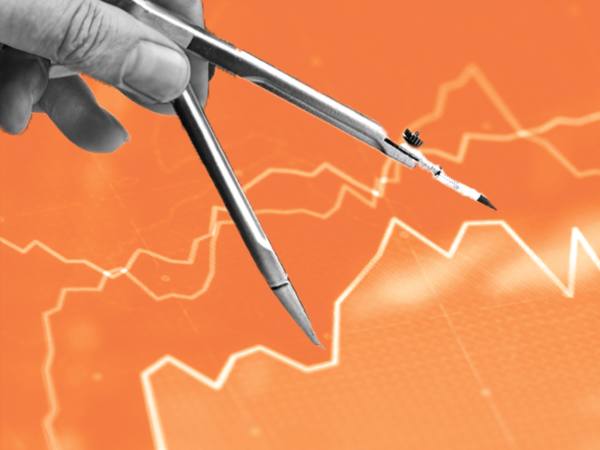An investor needs to be a contrarian in order to outperform markets. As Sir John Templeton once said: "It is impossible to produce superior performance unless you do something different from the majority." Any disconnect between sentiment and fundamentals usually stands a better chance of being identified if time is not a constraint. For the stock market can indeed very easily become a mechanism for the transfer of wealth from the impatient to the patient. And this is again relevant when considering the case for emerging markets.
Poor sentiment
As a general rule, emerging markets have been underperforming for almost a decade. A variety of factors have contributed. Most recently, concerns have focused on the slowdown in China’s growth, the trade dispute between the US and China, the reversal of globalisation, and the expected change in global financial conditions after a decade of quantitative easing (QE) and easy money. The consensus believes all have the potential to reduce economic growth for the asset class and therefore market returns.
Yet the correlation between economic growth and stock market returns has not always been strong. The Chinese economy grew by close to 10 per cent a year from the early 1990s to 2018 and yet the MSCI China index returned on average one-tenth of that growth – just 1 per cent a year. Shareholders have not always benefited from strong economies – poor corporate governance, corruption, a disregard for minority shareholders, the lack of the rule of law and corrupt political systems have too often hindered returns from many markets.
Nevertheless, slowing global trade and fears regarding the retreat of globalisation are today particular concerns given many emerging markets are geared to global growth – exports account for around 40 per cent of Mexico’s and South Korea’s gross domestic product. Many companies borrow in US dollars and sell in the local currency – a strong dollar adds to debt-servicing costs. Furthermore, as China rises, many currencies are becoming more closely correlated with the yuan, which has implications when it comes to Chinese monetary decisions.
This accounts at least in part for why emerging markets have underperformed and why they are now looking good value. They trade on average at around a 20-25 per cent discount on a price/earnings (PE) ratio basis when compared with developed markets – with some markets trading at a significantly higher discount. A lot of the bad news appears to be in the price. Market sentiment is poor.
Better fundamentals
Yet research at a company level reveals a more optimistic picture. Recent analysis suggests emerging market companies are set to deliver superior returns over the coming years. Looking out seven years, the asset class is forecast to produce returns of over 5 per cent a year, with the cheapest set to deliver nearly double that. By contrast, the same analysis suggests US large-caps will fall over 3.5 per cent annually. Forecasts should always be taken with a pinch of salt, particularly given the recent record generally, but they can be helpful in suggesting scrutiny.
This focus on companies is important. Investors in the asset class have tended to underestimate the importance of identifying good corporate governance. A paper by Martijn Cremers in 2012 examined emerging markets' outperformance and identified around 90 companies that were the subsidiaries of blue-chip names such as Heineken, Unilever and Nestlé. These companies had on average significantly outperformed their local indices.
The overriding reason was that they had tended to adopt their parents’ higher governance standards, which helped to ensure that the benefit gained from high economic growth rates actually filtered through to shareholders. Indeed, many of these companies also outperformed their parents, for robust economies can be a strong tailwind if properly harnessed. Quality is usually more rewarding than quantity.
This is important because corporate governance generally is gradually improving across the asset class. The pace is variable, but it is discernible. Better dividend growth and a greater recognition of minority shareholders, coupled with improved transparency of markets, are some of the consequences of this development. Those countries setting higher standards and thereby improving the quality of their earnings will continue to be rewarded by investors over time.
Better governance will be one of the factors helping to compensate for any slowing in economic growth. Yet, even catering for pessimistic assumptions, courtesy of underlying policies and much younger and increasingly affluent populations, growth should still in most cases surpass that of many developed economies. Even today estimates suggest emerging economies are achieving a growth rate of 4.5 per cent, with Asia doing a lot of the heavy lifting.
There are of course other reasons to be positive. Investors still tend to underestimate the change in the composition of the markets. A traditional reliance on commodities is giving way to those sectors better servicing the huge rise in domestic demand, courtesy of the largest urbanisation the world has ever seen and a concomitant rise in the middle class. Sectors such as information technology and financials are now much larger than energy or materials. This change is also helping to improve the quality of earnings of many markets.
Timing and time
The fact the asset class has underperformed for the best part of a decade may in itself be a further reason to be positive. There is rarely perennial underperformance or outperformance when it comes to an asset class – evolving themes, policies, consumer choices, technology advances and geopolitics are just some of the factors that see to that. History perhaps suggests it could now be time for a prolonged phase of outperformance.
This is where patience can be a virtue. Often unloved assets can more than make up for lost time once sentiment shifts in their favour. And time is one of the key advantages enjoyed by private investors when compared with those institutional fund managers who, by being perhaps too focused on quarterly returns, may continue to be too cautious for too long.
Of course not all emerging markets will outperform and the next decade will see a large number of reclassifications as to which country is considered ‘developed’, ‘emerging’ or ‘frontier’. Given concerns about the implications of a possible retreat in globalisation and the importance of strategic assets, as highlighted in a recent column (‘Retaining faith in technology’, 9 Aug 2019), those economies with large domestic markets, value-added capabilities, and key technology and intellectual property assets will perhaps fare better than most.
We at Equi are certainly looking to selectively increase exposure to this asset class where appropriate across the range of our nine real investment trust portfolios run in real time on the website www.johnbaronportfolios.co.uk, including the five representing a risk-adjusted investment journey. Otherwise, there were no changes to either portfolio during September.














